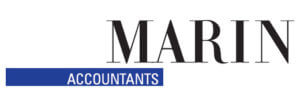At Marin Accountants we often inherit new clients with years of unlodged tax returns and business activity statements. Usually, it is a combination of poor record keeping, non-existent accounting function and the client’s old accountant not living up to their end of the bargain. Nowadays, if you are looking to obtain finance from the banks your tax lodgements need to be up to date. All tax liabilities paid as the banks ask for confirmation of income tax and integrated client account balances. Furthermore, being late with lodgements means late lodgement penalties and general interest charges applied to your ATO accounts. This could result in quite a large sum of income tax, GST and PAYG withholding to pay in one go. Where does one find the funds to meet the tax liabilities?
However, it is not all doom and gloom. In the past we have helped tax payers to get their tax lodgements up to date and were successful in obtaining remission of general interest charges and late lodgement penalties. We have also negotiated payment arrangements to give the clients an opportunity to get their affairs in order.
Asset Protection
Sometimes, unfortunately it is too late for some business to turn their fortunes around. Again rather than sticking your head in the sand you should get on the front foot and engage with insolvency practitioners to achieve the best case outcome of what is a pretty terrible situation.
Having spoken to insolvency practitioners in the last few months, the recurring advice from them is to make sure that clients structure their affairs in the best possible way from asset protection point of view. Assets such as family homes, property investments and investments in shares or other equities should be as protected from creditors as they possibly can be. This generally means that the family home is not in the name of the individual that is the most exposed to business risk.
Even if the family home is in the name of the main decision maker we would encourage our clients to pursue other asset protection strategies to make sure the assets are encumbered to the greatest extent possible, so that the exposed equity in your home or other investments is as small as possible.
We recommend the use of investment trusts with trustee companies to hold other property and equities investments. Consider appointing independent trustees such as accountants and lawyers, or any other trusted advisors to better protect the assets you worked hard to accumulate.
Business Structure
We often see scenarios when taxpayers are initially given advice in relation to their business structure. A lot of the time the advice is to set up a company where the taxpayer holds the shares in the company personally. As years goes by the business grows – value of the business increases until comes a day when the business owner decides to sell, restructure or pay out the accumulated profits. Any capital gains from the sale of shares or restructure in the company or dividends paid to the shareholder are taxed in the individual shareholder’s name.
Our recommendation is to consider an alternative arrangement on day one. When the company is set up a discretionary or family trust is set up to hold the shares in the trading company. The structure would initially be more costly to implement but in the long run would save you thousands of dollars in income tax. Any capital gain or dividends as per above scenario would flow into the trust and then will be distributed to a larger pool of beneficiaries including family members and corporate beneficiaries or other trusts within the family group.
For more information, please contact Eugene Khakham at eugenek@marinaccountants.com.au or call our office on (03) 9645 9229 if you would like to have a discussion in relation to the above.



